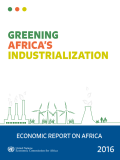
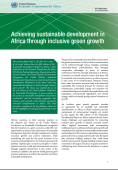
This is the first in a series of six briefs, drawn from Achieving Sustainable Development in Africa through Inclusive Green Growth, a joint publication of the Economic Commission for Africa (UNECA), the Food and Agriculture Organization of the United Nations, the United Nations Industrial Development Organization and the United Nations Development Programme on the theme of "achieving sustainable development in Africa through inclusive green growth". This brief provides a snapshot of the key findings, which are further highlighted in subsequent policy briefs in this series.
This policy brief provides an overlook of green growth in a number of sectors, including agriculture, ecosystem goods and services, energy, industry, and trade. It also examines various enablers for the transition toward a green economy.
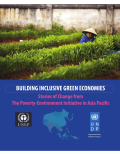
The UNDP-UNEP Poverty Environment Initiative (PEI) offers a unique way of tackling these issues together by offering policy options to governments on how sustainable use of natural resources can help reduce poverty and maintain economic growth. With strong support from six donors globally, PEI in Asia Pacific is working with nine countries to mainstream pro-poor natural resource management into economic policies and decision making to achieve more inclusive green economies.
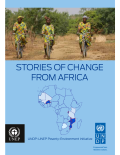
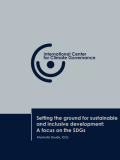
The United Nations summit, aimed at adopting the development agenda for the next fifteen years, took place from September 25 to 27. The meeting, held at the UN headquarters in New York, saw around 140 heads of state and government discuss and approve the new set of Sustainable Development Goals (SDGs), which will replace the Millennium Development Goals (MDGs) due to expire at the end of this year. By promoting sustainable and inclusive development, SDGs are the expression of a new vision of development able to foster economic goals while addressing the major societal and environmental challenges of our time. Besides the words, however, the real challenge will be implementation.
